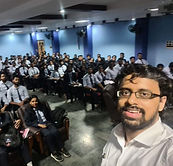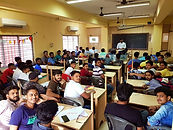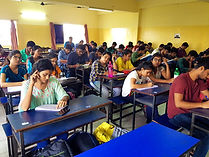IAS POLITICAL SCIENCE AND INTERNATIONAL RELATIONS Optional Paper 2 Solutions- Section B Question 7,8
- SOURAV DAS

- Mar 23, 2023
- 7 min read

7. (a) Examine the unique features of the 73rd Constitutional Amendment. Do you think this Amendment would contribute to achieving the goal of empowerment of marginalized sections of society?
Answer: The 73rd Constitutional Amendment Act, also known as the Panchayati Raj Act, was enacted in 1992 to strengthen democracy at the grassroots level in India. The main features of the 73rd Amendment are:
Establishment of Panchayats: The Amendment provided for the establishment of Panchayats at the village, intermediate, and district levels, and made their institutions of self-government.
Elections: The Amendment made it mandatory to hold regular elections for Panchayats every five years.
Reservation: The Amendment provided for the reservation of seats for Scheduled Castes, Scheduled Tribes, and women in Panchayats.
Powers and Functions: The Amendment gave Panchayats the power to prepare plans for economic development and social justice and to implement them, subject to the control and guidance of the state government.
Finance: The Amendment provided for the creation of a three-tier system of Panchayat finances, with funds from the state government, the central government, and the Panchayats themselves.
The 73rd Amendment has been instrumental in empowering marginalized sections of society, particularly women and Dalits, by giving them representation in the decision-making process at the local level. The reservation of seats for these groups has led to greater participation and representation of women and Dalits in local governance.

The Amendment has also enabled the Panchayats to take up issues of economic development and social justice, which were previously neglected. The Panchayats have been able to implement various schemes for the welfare of marginalized sections of society, such as providing basic health and education facilities, water supply, and sanitation.
Overall, the 73rd Amendment has been successful in decentralizing power and bringing governance closer to the people. However, its effectiveness depends on the political will of the state governments and the active participation of the people. There are still challenges to be addressed, such as improving the capacity of Panchayats to deliver services, ensuring greater transparency and accountability, and addressing the issue of political interference.
In conclusion, while the 73rd Amendment has contributed significantly to the empowerment of marginalized sections of society, there is still much to be done to achieve its full potential. However, with the right support and resources, the Panchayati Raj system has the potential to be a powerful tool for inclusive and participatory governance in India.
(b)The Speaker represents the freedom and dignity of the House. Examine.
Answer: The Speaker is an essential component of any legislative body, particularly in a parliamentary system of government. In this context, the Speaker is considered to represent the freedom and dignity of the House. This statement can be examined in several ways:
Firstly, the Speaker is responsible for maintaining order and decorum within the House. The Speaker ensures that members of the House follow the rules and procedures and that debates are conducted in a civil and respectful manner. By doing so, the Speaker upholds the dignity of the House, which is essential for the effective functioning of a legislative body.
Secondly, the Speaker is responsible for protecting the rights and privileges of the members of the House. For example, the Speaker ensures that members are free to express their opinions without fear of retribution and that they have equal opportunities to participate in debates and decision-making. This protection of the rights and privileges of the members of the House contributes to the freedom of the House.
Thirdly, the Speaker is responsible for representing the House to the outside world. The Speaker interacts with other branches of government, foreign dignitaries, and the media on behalf of the House. By doing so, the Speaker promotes the freedom and dignity of the House and ensures that its work is respected and valued.
In conclusion, the Speaker of a legislative body represents both the freedom and dignity of the House. The Speaker plays a critical role in maintaining order and decorum within the House, protecting the rights and privileges of its members, and representing the House to the outside world.
(c) Discuss the policy initiatives of the Fourteenth Finance Commission aimed toward promoting and strengthening agricultural development in India.
Answer: The Fourteenth Finance Commission (FFC) was constituted in 2013 to recommend the sharing of central taxes between the Centre and the States. The FFC was also tasked with suggesting measures to promote the development of agriculture, which is a crucial sector of the Indian economy. The following are some of the policy initiatives of the FFC aimed at promoting and strengthening agricultural development in India:
Allocation of funds to States: The FFC recommended that a higher share of central taxes should be allocated to the States to enhance their financial capacity to promote agricultural development. The FFC recommended that the States' share in the divisible pool of taxes should be increased from 32% to 42%.
Strengthening the Agricultural Marketing Infrastructure: The FFC recommended the strengthening of the agricultural marketing infrastructure in the country. It suggested that the State Governments should undertake measures to upgrade and modernize the existing markets and establish new ones.
Promotion of Crop Diversification: The FFC emphasized the need to promote crop diversification in India. The commission recommended that States should shift their focus from rice and wheat to other crops such as pulses, oilseeds, and coarse cereals. This would help in increasing the income of farmers and improving the nutritional status of the population.
Investment in Irrigation: The FFC recommended that the States should prioritize investment in irrigation to improve the productivity of agriculture. It suggested that the States should undertake measures to increase the efficiency of existing irrigation systems and establish new ones where necessary.
Encouragement of Organic Farming: The FFC recommended the promotion of organic farming in the country. It suggested that the State Governments should provide incentives to farmers for adopting organic farming practices and encourage the establishment of organic markets.
Overall, the policy initiatives of the Fourteenth Finance Commission aimed towards promoting and strengthening agricultural development in India emphasized the need for increased investment in agriculture, crop diversification, and modernization of agricultural markets and infrastructure. These measures are expected to boost agricultural productivity and income of farmers, thereby contributing to the overall economic development of the country.
8. (a) Ethnicity is the underlying cause that poses a great challenge in the resolution of the problems in the North-East region of India. Comment.
Answer: It is essential to recognize that the situation in the North-East region of India is complex and multifaceted, and cannot be attributed to a single underlying cause such as ethnicity.
While it is true that ethnicity plays a significant role in the region's political and social landscape, other factors such as historical, economic, and cultural differences have also contributed to the challenges faced by the region. For example, the North-East region of India has a history of insurgency and conflict due to various factors, including resource competition, governance issues, and ethnic tensions.
It is important to approach the issue with sensitivity and recognize the diversity of the region and its people. Addressing the problems in the North-East region requires a nuanced and holistic approach that takes into account the complex interplay of different factors. This includes addressing governance and development deficits, improving communication and dialogue between different ethnic groups, and promoting inclusive policies and practices that address the region's unique challenges.
(b)The making of the Indian Constitution is described as an attempt towards `social revolution'. Comment.
Answer: The making of the Indian Constitution was indeed a significant attempt toward social revolution. The Indian Constitution was framed after India achieved independence from British colonial rule in 1947. The Constitution was drafted by a Constituent Assembly that consisted of representatives from all parts of the country and from various political and social backgrounds.
The framers of the Constitution recognized that India had been plagued by centuries of social and economic inequalities that needed to be addressed if the country was to make progress toward becoming a modern, democratic, and secular republic. The Constitution was therefore designed to be a document that would not only establish the structure of the Indian government but also provide a framework for social and economic reforms that would benefit all sections of society.
The Constitution of India enshrines a number of fundamental rights, such as the right to equality, freedom of speech and expression, freedom of religion, and the right to life and liberty. These rights are essential for the development of a just and equitable society. The Constitution also includes provisions for affirmative action, such as reservations in educational institutions and government jobs for disadvantaged groups, in order to redress historical social and economic imbalances.
Furthermore, the Constitution of India lays down the principles of democracy, secularism, and socialism. It provides for a representative democracy with periodic elections, an independent judiciary, and a free press. The Constitution also prohibits discrimination on the basis of religion, caste, gender, or race. It further mandates that the government must work towards the establishment of a socialist society, with a focus on social welfare, equitable distribution of resources, and the elimination of poverty.
In conclusion, the making of the Indian Constitution was a significant attempt toward social revolution, as it sought to transform Indian society by promoting equality, justice, and social welfare. The Constitution of India has played a vital role in shaping India's democratic and secular character and has helped to create a more inclusive and equitable society.
(c) How far is it correct that the regional parties have strengthened the Indian democracy and federal system? Substantiate your answer with suitable examples.
Answer: Yes, it is true that regional parties have played a crucial role in strengthening Indian democracy and the federal system. Since India is a vast and diverse country with various regional and cultural differences, the presence of regional parties has allowed for better representation of different communities and their issues. Here are a few examples to support this argument:
State Autonomy: Regional parties have played a significant role in advocating for state autonomy, which is a fundamental aspect of India's federal system. For instance, parties like the Telugu Desam Party (TDP) in Andhra Pradesh and the All India Anna Dravida Munnetra Kazhagam (AIADMK) in Tamil Nadu have been vocal in their demand for more autonomy for their respective states.
Coalition Governments: Regional parties have also played a crucial role in the formation of coalition governments at the center. This has helped to ensure that the interests of different states and communities are represented at the national level. For example, the coalition government led by the United Progressive Alliance (UPA) included regional parties like the Dravida Munnetra Kazhagam (DMK), Trinamool Congress (TMC), and Nationalist Congress Party (NCP).
Minority Representation: Regional parties have also given a voice to marginalized communities that are often neglected by mainstream political parties. For instance, parties like the All India Majlis-e-Ittehadul Muslimeen (AIMIM) in Hyderabad and the Janata Dal (Secular) in Karnataka have been instrumental in representing the interests of Muslims and other minority communities.
Electoral Competition: The presence of regional parties has also increased electoral competition, which is crucial for the functioning of a healthy democracy. The rise of regional parties has challenged the dominance of national parties like the Congress and the Bharatiya Janata Party (BJP), forcing them to take into account the needs and concerns of regional voters.
In conclusion, regional parties have played a vital role in strengthening India's democracy and federal system. They have provided greater representation to marginalized communities, advocated for state autonomy, increased electoral competition, and facilitated the formation of coalition governments at the center.
If you find this useful, enroll now
Yes, I want to enroll
Thinking about it


































Click here provide members with discounts on over-the-counter medications, vitamins, and health essentials, promoting better health management and cost-effective wellness solutions. kaiserotcbenefits.com - more details here
Click here help you find recent death notices, providing information about funeral services, memorials, and tributes for loved ones in your area. obituariesnearme.com - more details here
Click here? Many users have had mixed experiences with the platform, so it's important to read reviews and verify deals before booking. istravelurolegit.com - more details here
google seo…
03topgame 03topgame;
gamesimes gamesimes;
Fortune Tiger…
Fortune Tiger…
Fortune Tiger…
EPS Machine…
EPS Machine…
seo seo;
betwin betwin;
777 777;
slots slots;
Fortune Tiger…
seo优化 SEO优化;
bet bet;
google seo…
03topgame 03topgame;
gamesimes gamesimes;
Fortune Tiger…
Fortune Tiger…
Fortune Tiger…
EPS Machine…
EPS Machine…
seo seo;
betwin betwin;
777 777;
slots slots;
Fortune Tiger…
seo优化 SEO优化;
bet bet;
google 优化 seo技术+jingcheng-seo.com+秒收录;
谷歌seo优化 谷歌SEO优化+外链发布+权重提升;
Fortune Tiger Fortune Tiger;
Fortune Tiger Fortune Tiger;
Fortune Tiger Fortune Tiger;
Fortune Tiger Slots Fortune…
gamesimes gamesimes;
站群/ 站群
03topgame 03topgame
betwin betwin;
777 777;
slots slots;
Fortune Tiger Fortune Tiger;
google seo…
03topgame 03topgame
gamesimes gamesimes;
Fortune Tiger…
Fortune Tiger…
Fortune Tiger…
EPS машины…
Fortune Tiger…
EPS Machine…
EPS Machine…
EPP Machine…
EPS Machine…
EPTU Machine…
EPS Machine…
seo seo